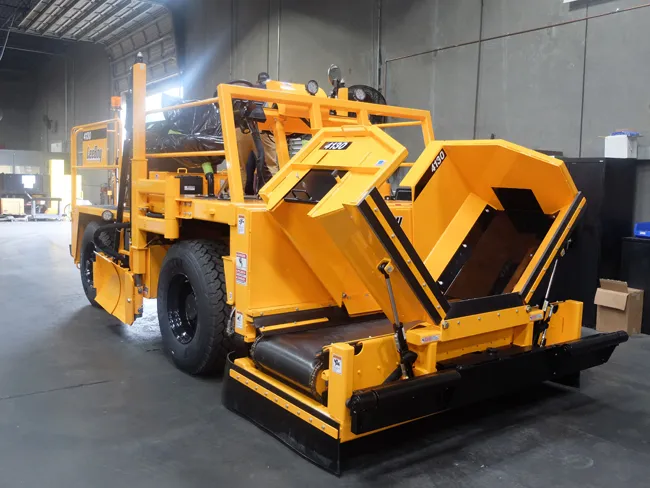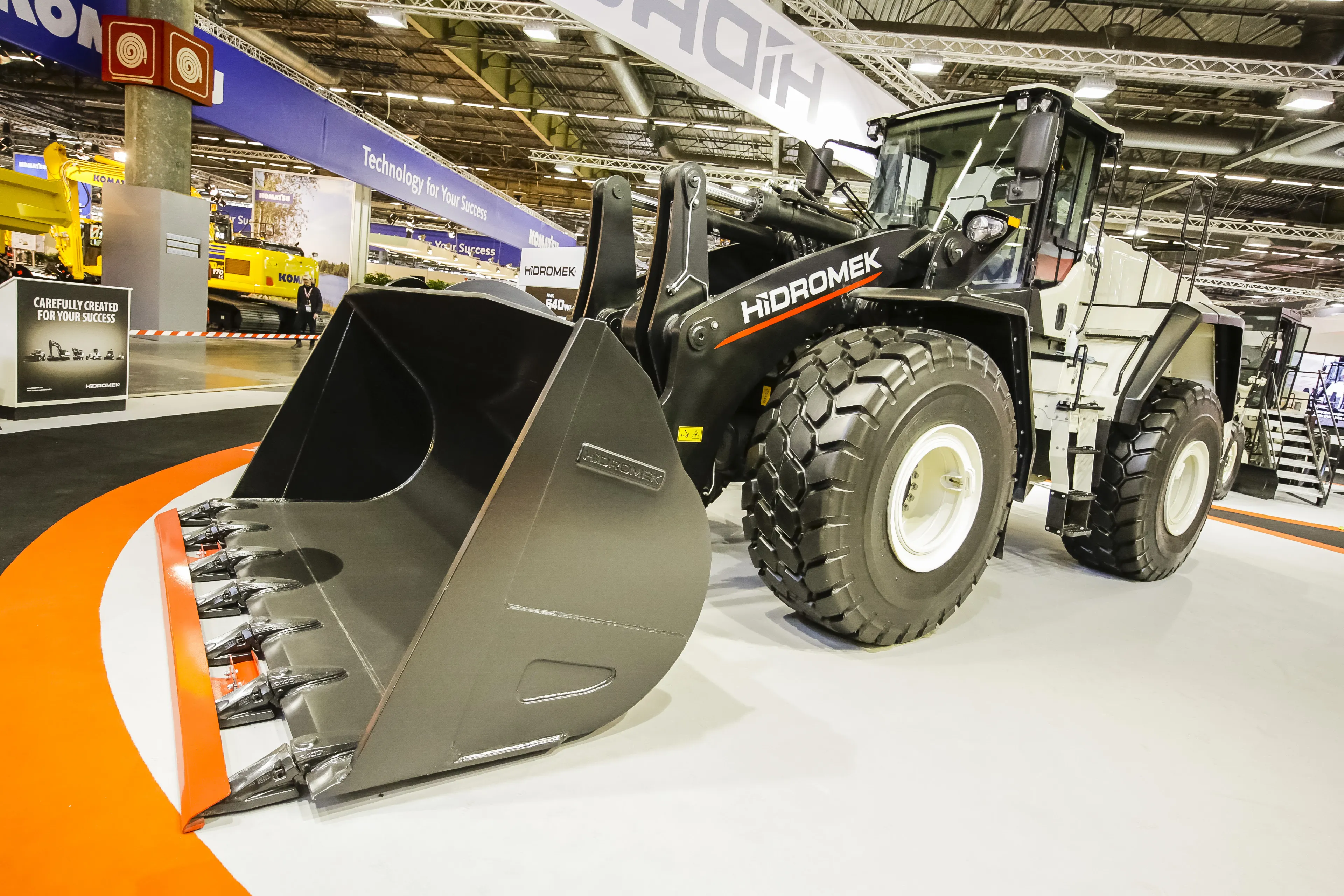
Christopher Barnard is CEO of LeeBoy and commented, “The US has been strong. Demand is there and the infrastructure spending is there. It’s a good market. In our segment for commercial paving we’re doing very well.” The paver range is selling well and the firm’s 8520 model is a particularly strong seller. Barnard said, “We’ve been very successful with the new paver model, the 8520, which we introduced last year.”
This machine has a Tier 4 Final compliant diesel, a key feature in its strong sales. However, LeeBoy is also benefiting from the strong investment the firm made ahead of the deadlines on emissions requirements, to ensure that Tier 4 Final engines were available for the product range in the US. And he clarified that having the Tier 4 Final variants available early has helped the firm’s overall sales. He said, “We’ve spent three years investing in Tier 4 Final compliance. That was no small feat.”
The new low emission engines are certainly cleaner in operation, but the extra technology for aftertreatment means they are also more costly, although this has not deterred customers. The technical challenge of installing these engines (mostly either
Upgrades have also been made to other machines in the LeeBoy range, with both the 695 grader and 4130 road widener also now equipped with Tier 4 Final power. Meanwhile the firm is also keen to ramp up broom business and develop sales of its ancillary machines.
Technology changes are coming fast in the off-highway construction equipment market, although Barnard said that many contractors are wary of being early adopters. But he said that the firm continues to monitor customer demand very closely and is paying close attention with regard to feedback from its dealers. He added, “We want to be ahead of it. We’re evaluating the market segments we’re in.”
The potential for dataflow from operating machines is something Barnard is also monitoring closely. He said, “Looking at the process of digitalisation, connectivity goes beyond the machine to the dealer or manufacturer.” In other markets, LeeBoy is also performing well. The company is looking to develop its presence in Latin America and will continue supplying Tier 3 machines for that market. Barnard said, “We do well in Central America and Brazil.”
Manufacturing is another key point for the firm. Barnard said, “We’ve invested significantly in this factory.” And he explained that the company is focussing on increasing efficiency and making greater use of lean manufacturing techniques at the plant, to maximise its effectiveness. “We want to take it to the next level,” he added.
He said that hiring new personnel has been an issue but added, “I think we’ll be able to get our expansion from existing people.”
The firm does have an order backlog at present. However the strong market for construction machines has created its own problem, with pressure now being seen on the component supply chain.








